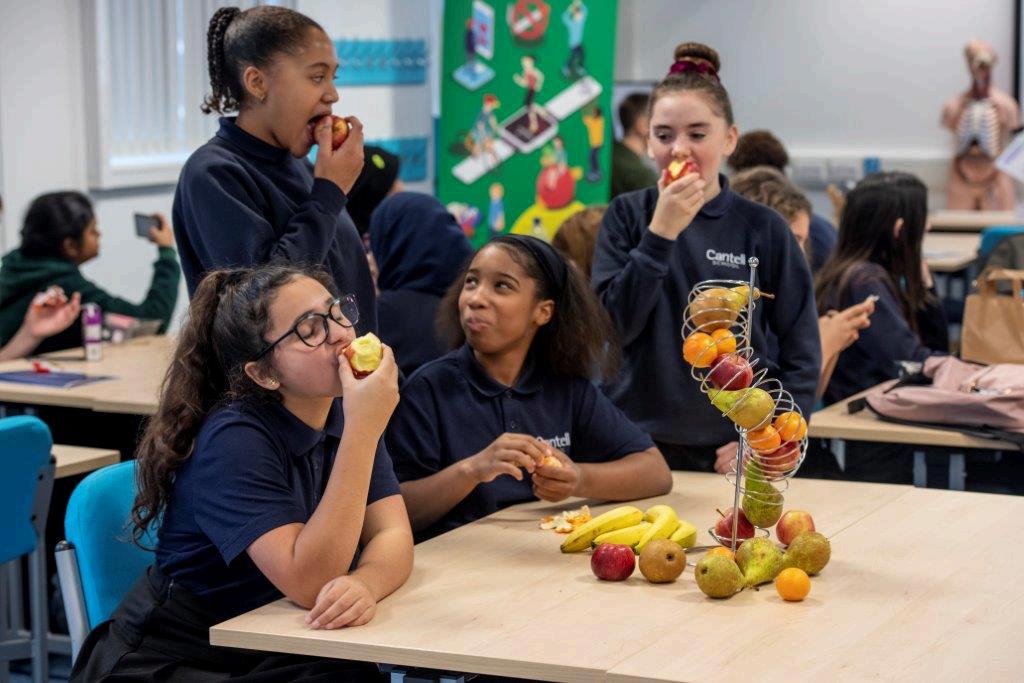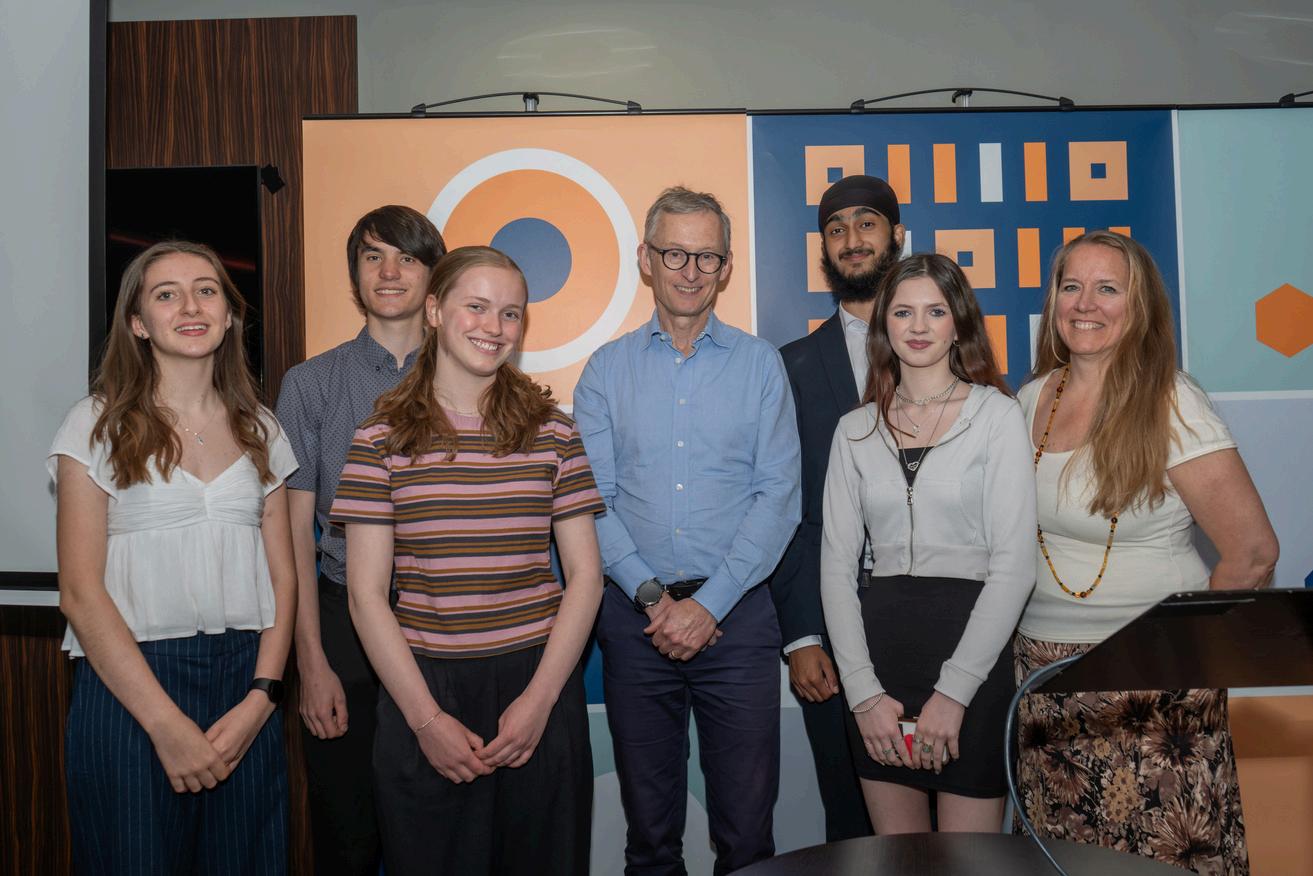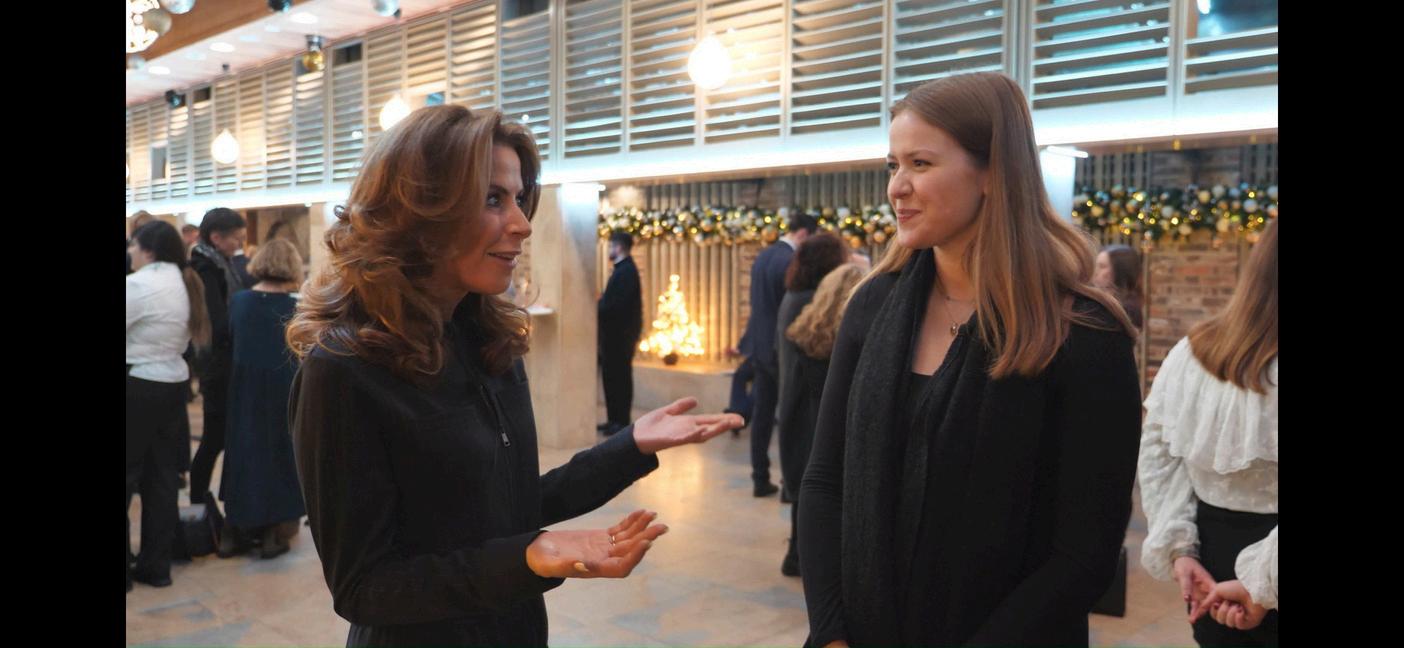

L I F E L A B








Foreword
As we reflect on a decade of LifeLab’s journey, we are filled with immense pride and gratitude for the incredible impact it has had and continues to have on children, young people, teachers, parents and communities both locally and internationally What began as a vision to empower young minds through scientific discovery has flourished into a comprehensive and transformative programme that continues to shape healthier, brighter futures.
In 2024, we celebrated 10 years of our bespoke LifeLab facility at University Hospital Southampton, which has reached over 16,000 students with its hands-on, curriculum-linked science programmes This year alone, we expanded our reach through initiatives such as the Early LifeLab programme and through our global partnerships, proving that science and education know no boundaries Together with teachers, researchers, and young voices, we are challenging inequalities, fostering a love for STEM, and equipping the next generation with the tools to thrive in an ever-changing world
Thank you to everyone who has supported LifeLab over the years – from funders, educators, policymakers and scientists to our brilliant young people and their families This report celebrates our shared achievements and sets the stage for an exciting future as we continue to innovate, inspire, and empower Here’s to the next 10 years of discovery and impact!



thryn Woods-T LifeLab Programme Director
welcome
OUR MISSION
Change the beginning and you change the whole story
Our mission is to empower children and young people through scientific discovery to make positive lifestyle choices for their physical and mental health, wellbeing and resilience - now and in the future and for their future children. Through our activities, we want to:
reverse the trend of rising unhealthy behaviours and lifestyles for children and young people in the UK address the link between health behaviours, disadvantaged backgrounds and underachievement to reduce social and health disparities co-create with children and young people an environment to allow their voices to be heard, to advocate for change and to enable them to flourish, building resilience for a changing world. build the evidence base for ways of enabling behaviour change in children and young people support and empower teachers to encourage behaviour change with their students. increase awareness and interest in STEM (and related) careers


Experience-led EDUCATION with emphasis on hands-on self-discovery, access to inspiring STEM practioners and exploration events
Leading innovative RESEARCH at the interface of Education and Public Health Create
Working in partnership with children young people and stakeholders to EXCHANGE and TRANSFER expertise to co-create brighter futures
10 years of lifelab
Experience Discover Create
This impact report has something extra special about it.
2024 was the 10th anniversary of our dedicated LifeLab facility set in the heart of University Hospital Southampton Over the past 10 years, this bespoke space has enabled more than 16,000 young people from nearly 100 schools to gain a better understanding of the science behind the health messages they see every day Students can take part in scientific experiments about their bodies From seeing their DNA, to studying carotid artery blood flow using ultrasound, to assessing body composition, to performing lung function tests and measuring grip strength and hamstring flexibility, our students get a first-hand experience of what makes their body tick and what they can do to ensure they look after it.

The facility has enabled our team to expand the programme to primary schools, develop training programmes for young people and train even more scientists on how to engage with different audiences.
Before the LifeLab space was opened in 2014 by HRH the Duchess of Edinburgh, the programme was held in ‘ pop-up ’ labs, either at the University of Southampton’s Highfield Campus (the Maths and Science Learning Centre), in the NIHR Clinical Research Facility at University Hospital Southampton, in the Institute of Developmental Sciences labs and at the Princess Anne Hospital One of the pupils who experienced LifeLab was Gemma Clarke
More than 750 teachers have been trained in LifeLab resources, and hundreds more students have attended our summer schools
But it’s more than just a school trip The LifeLab programme is a curriculum-linked, fully resourced ‘Science for Health Literacy’ module, which includes professional development for teachers, giving them an understanding of the programme and skills needed to support students in making lifestyle changes and a series of lessons to be delivered in school before and after their visit to us
Outputs

MY TIME AT LIFELAB
-15 YEARS AG0!
In 2009, as a year 9 student at Redbridge Community School, Gemma was one of the very first students to attend a LifeLab session It was a pilot session to establish whether the concept would be beneficial to young people and feasible in a laboratory setting. Alongside a group of her classmates, Gemma took part various experiments looking at the body including grip strength DNA sequencing.
Fifteen years later, a chance meeting with LifeLab manager Professor Kath Woods-Townsend brought her back to LifeLab.

2024 2024
Gemma now works at Health Innovation Wessex, a regional organisation established by NHS England to spread innovation in health and care One of the projects she is currently supporting is looking at ways to improve the health of younger people It was at a workshop event for Children and Young People’s Healthy Weight, where she met Kath and found out what had been happening at LifeLab Gemma remembers her LifeLab trip and how it continues to play a role in her life now.
“I remember the students chosen to do LifeLab thought it was pretty cool to be able to go to the University/Hospital and take part in the programme, ” Gemma explained.
“Only a small group of students were chosen to attend, so we thought being part of the select few was pretty specia We were excited to be part of something that the Univers ran and to be in a different place, on a university campus was very fun compared to our usual school lessons But that’s what’s so good about the programme now – all young people get to attend Everyone has the opportunit to benefit from what it is trying to achieve”
2009 2009


Gemma has spent time working in the NHS and in her last role supported an NHS England initiative setting up and overseeing clinics for Children with Complications Related to Excess Weight (CEW). “LifeLab has the power to help so many people Of course, the students who attend the sessions and experience the curriculum are the first people to benefit but more broadly, their family and friends will also benefit from the messages they take away from the experience. It empowers them to make real changes in their life”
“When I was in school, I probably didn’t fully appreciate what I was taking in, but now I am a mother and have my own family, I use those lessons now and want my daughter to benefit too I don’t want her to grow up and face the same challenges we did.
“I’m so grateful LifeLab is still going, it's fantastic to see how it’s expanded into primary schools and is connecting with older teenagers through the Young Researcher Training Programme Long may it continue.”
2024 in numbers
11,818 ,818
LifeLab secondary school students from 29 schools students took part in school holiday opportunities
27 27 65 65
36 36
4,060 4,060 researchers and scientists trained in engagement activities
Early LifeLab students from 23 schools
1111 11
people took part in virtual work experience sessions
Youth Panel members 20 20
teachers trained in LifeLab programmes 234 234
118 8 Young Health Activists
Young Researcher Training Programme participants
EMPOWERING YOUNG MINDS THROUGH SCIENCE
Our Early LifeLab programme has gone from strength to strength
More than 4,000 children took part this year, taking the total so far to nearly 6,000 We’ve increased the number of schools taking part, from eight in the first year to 18 this year, and now nearly 300 teachers have been trained to deliver the programme
Our aim is to provide primary school teachers with comprehensive, hands-on learning resources to engage children with the science behind why it is important to make healthy life choices. We want to encourage children to use their understanding of themselves and their bodies to support their decisions related to nutrition, exercise and sleep From experience, we know that children of this age are very keen to learn about these things, although existing facilities and opportunities are often limited
We’re delighted that now more than 25 schools have delivered the Health Warrior modules, covering all aspects of healthy living, introduced with lively videos linking to the fun learning activities
This year the children have:
used stethoscopes to compare heart rates before and after exercise
“Children were able to apply their learning in a reallife context The cases provided us with everything we needed” - Year 3 teacher

explored bone strength using chocolate bars
used role play to set up a healthy cafe
This year, we ’ ve developed two new mini modules for other year groups, ensuring LifeLab interventions are reaching more primary children
The first is for Year 4 and is all about digestion, and the second is for Year 5 and about teeth.
It’s exciting that young children and their teachers are helping us to develop this programme
AN AWARD-WINNING PROGRAMME
We are incredibly proud that our LifeLab programme continues to educate and support young people across Southampton and the surrounding areas to make better and more informed choices about their diet, lifestyle and wellbeing
LifeLab has been nationally recognised for its innovative work to improve the health and wellbeing of young people by winning the Health at Every Age category at this year ’ s Health & Wellbeing Awards organised by the Royal Society for Public Health
The category celebrates initiatives that improve the health specific age group in the here and now and makes efforts to protect their future health.
Assessors said: “This is an excellent programme which seeks to aid decision-making about health and wellbeing through engagement in scientific discovery. The importance of this programme cannot be underestimated in terms of its impact on lifelong learning and opportunity – health and wellbeing is the foundation of a vibrant community and productive workforce and economy This preventative approach provides far-reaching Public Health benefits on an ongoing and enduring basis”


A GLOBAL PRESENCE
LifeLab started in Southampton, but we are now making an impact around the world! LifeLab is working with partners across the world to deliver similar interventions in Australia, Ireland and South Africa, with new sites being discussed in Ghana and Nepal We all came together for the inaugural LifeLab Global Community of Practice Workshop, an initiative designed to share best practices and enable research, advocacy and education
During the workshop, LifeLab and University staff and our global partners discussed the different contexts of education and outreach needed in each location, local health needs, teacher training, common goals, and potential areas for funding. It was a great success, and colleagues left with a commitment to work together to bring these opportunities to more young people, both in existing settings but also for our new partners in Ghana and Nepal. Since the meeting, we have published a paper in the Health Expectations Journal describing the feasibility of the South Africa intervention, and we are preparing a new paper exploring the principles and shared vision from across all the international sites.
INSPIRING THE NEXT GENERATION
Our work extends beyond academic learning We want to support and encourage young people to become inspired and ambitious about their futures and develop the skills they need to live their lives to their full potential We provide various opportunities throughout the year to ensure teenagers are equipped with the tools and experience to support their further education and employment journeys and beyond These include the Young Researcher Training Programme, the LifeLab Youth Panel, the ‘Experience Medicine with LifeLab Summer School’ and new RSPH qualification, to name a few.

The Young researcher training programme
Thisyear,over25youngpeopletookonsomeofthebiggesthealthchallengesfacingtheirage group Frommenstrualhealthtovaccineuptaketomentalhealth,ouryoungpeoplecarriedout researchandthenpresentedtheirfindings
TheYRTPenablestheyoungresearcherstolearnandusedifferentresearchtechniquesincluding focusgroups,surveys,andsecondarydataanalysis,toexploreissueswhichtheyhaveidentifiedas importanttoyoungpeople Theyworkwithcommunitygroups,charities,NGOsandhealthandsocial scientiststoexpandtheirevidencebasebeforeworkingasagrouptorefinetheproject’soutcomes
ForonegroupontheYRTP,thisledtodevelopingasetofpolicyrecommendationstoimproveyoung people’shealthandwellbeing,whichtheypresentedto HampshireandIsleofWighthealthleadersataspecial YouthAssembly AnothergrouptookpartinthePathways toHealthprojectandcreatedresearchposterswhichthey presentedattheLifeLabShowcaseevent.
Watchthisvideowheretheyoungresearcherstalk abouttheimportanceofinvolvingyoungpeoplein policy:https://bit.ly/LifeLabYRTPRebootingDemocra
celebrating our young researchers
The achievements of our young researchers took centre stage at a special glittering film première and awards ceremony.



Hosted by local radio star Zoe Hanson, the red-carpet event held at Winchester Science Centre and Planetarium shone a spotlight on the resources about vaping created by the Youth Panel and short films made by the 2023 Young Researcher Training Programme


The youth panel
Establishedin2022,theYouthPanelrecognisesandcelebratesthecontributiono youngpeopleinidentifying,discussingandsolvingthechallengesfacingtheir generation.Memberstakepartincreatingandimplementingsolutionsthatcouldimprove theirownlivesandthoseoftheirpeers.BeingpartofaYouthPanelprovidesyoungpeople withtheopportunitytocontributetheirideas,perspectivesandexperiencesofissueswithinour society,workinateam,communicateeffectivelyandmaintainconfidentiality
Thisyear,oneofthetopicstheYouthPaneltackledwasvaping

Thetopichasneverbeentoofarawayfromtheheadlines,especiallyastheTobaccoandVapesBill wasintroducedin2024,aimingtopreventthesellingofdisposablevapestargetedatyoungpeople
Membersofthepanelfocusedonunderstandingtherolevapi playsinthelivesofyoungpeople SupportingaUniversityof SouthamptonMastersstudenttoconductresearchintoteenag viewsonvaping,theythendevelopedevidence-basedresourc tohelpyoungpeopleunderstanditsconsequences Itincluded targetedtoolkitofteachingmaterialsandlessonplansforuse theclassroom,alongwithavirtualreality(VR)experiencethat emphasisesthepeerpressureteensfeelregardingvapingand thehealthdangersofthehabit.TheworkalsoinformedLifeLa responsetothegovernment’scallforevidenceandtook centrestageattheSenseaboutScienceEvidenceWeekinParliamentinJanuary2025
We believe that being able to express yourself in front of the people who make decisions that affect our daily lives is a valuable experience for our young people and the policymakers themselves.

In the spotlight
Over the year, several of our talented young people have had other opportunities to speak publicly about their work and what it means to them. For example, our students spoke at the NIHR Southampton Biomedical Research Centre Open Day, ran the Citizens’ Assembly for Hampshire and Isle of Wight Integrated Care Partnership, and also presented alongside Professor Kath Woods-Townsend, LifeLab Programme Director, at the Paediatric Innovation, Education & Research (PIER) Network Conference.



















Eva
Samuel Maia
Eve
Libby
Zarka
Vishaan
Meet Maddie and Vishaan

Both Madeleine Harris and Vishaan Vohra have been involved in various activities with LifeLab, including the Youth Panel and the Young Researcher Training Programme, and they pitched the idea that, if we wanted to reach out to young people on social media, then young people should be the ones creating the content So, with funding from the University’s Public Engagement with Research fund, began the inaugural LifeLab Young Person’s Social Media Team Here, they describe what it’s like to be part of LifeLab.
“We’ve had the pleasure to take part in several engagement activities through LifeLab, which have helped us develop important skills that we will need during university and beyond, for example, speaking in front of large audiences, data collection and research development skills, as well as things like timekeeping, teamwork and independent working. All this has given us the confidence to hit the ground running when we go to university”






“The projects and have provided aut and insight to make changes in the way they provide certain services and are being used by young people to change their habits Knowing that these are making a difference in people’s lives and that they’ve come from a university, has shown us the impact that universities can have.”
“We feel very fortunate that we ’ ve been able to take part. More young people should have these opportunities too Creating immersive opportunities that help break down any perceived barriers and enable young people to see how the institution works from the inside will empower them to be involved with the work that’s taking place there, which has real consequences ”
young health activists
We worked with the Royal Society for Public Health to develop a new qualifcation - the Young Health Activist Level 2 qualification
i“Verywelldoneontheeffortlearnershaveput ntotheirwork, suchawiderangeofactivities andevidence. Evidencewasverydetailedand tdemonstratestheapplicationofknowledge, herearesomeveryinsightfulanswersgiven” – AssessorforYoungHealthActivistqualification
The qualification is designed for young people interested in supporting their peers' health and wellbeing. It helps learners develop the skills needed to be a young health activist, focusing on understanding factors that influence youth health and the resources available for improvement. Learners also gain tools and skills needed for effectively communicating health improvement messages. We ran a pilot of this qualification in the summer holidays, where nearly 20 people attended a one-day course, held at LifeLab, where they completed Unit 1 - a range of engaging and interactive activities focused on understanding young people’s health and wellbeing To complete Unit 2, students had to deliver a health message to young people and collect evidence of its impact.
We were delighted that every student successfully completed the course and received their Level 2 certificates Feedback from the assessor was very positive and we are looking forward to helping more young people gain this qualification
The next generation
Throughout the year, young people from around the UK take pa our interactive sessions to experience life as doctors.
Whether it’s through summer schools or virtual work experience, these events encourage a new generation of healthcare professionals Attendees experience anatomy teaching in labs, tour the busy wards of University Hospital Southampton and quiz current medical students about what it’s like to study medicine.
The experience is so informative that some return as University o Southampton students – like Ria Hill. Ria attended a summer sch and has since completed a BSc Biomedical Science and is now a Post Graduate Medicine student at the University of Southampton. She said: “The clinical work was amazing to talk about in my personal statement and to reassure me this was the path for me LifeLab allowed me to have a deeper insight into the clinical side of practising artificial limbs skills such as cannulation that I wouldn't have been able to practise in years otherwise. It reassured me this was what my future would look like and gave me plenty of experiences to reflect upon ”


This year, 65 students from 25 schools took part in the Easter and summer schools and more than 100 people from around the UK took part in the virtual work experience.
supporting our community
The Southampton Fringe Festival was one of the most exciting events in the city’s 2024 calendar and LifeLab was delighted to be a (small!) part of it
SO: FRINGE showcases the rich culture of Southampton with a programme of performances spanning comedy, dance, live music, poetry and theatre
For the past four years, we ’ ve been working with Theatre for Life to combine arts, theatre and science to shine a light on health and wellbeing issues, particularly for young people
This latest project, “The feeling of knowing something is wrong, but it isn't”, began as a ‘Public Engagement with Research’ project and was performed by the Theatre for Life company as part of the festival It explored female hormonal health and gender identity. Focus groups were held with diverse groups of women at different stages of their hormonal lifecourse, (puberty, infertility, motherhood, and menopause) to discuss their experiences and how it’s shaped their life and identity. These powerful and emotional stories are often shrouded in silence and shame, and were brought to life to shape this production, through live theatre and music
‘The Feeling’ is an on-going cross-faculty project at the University of Southampton, funded through the Public Engagement with Research fund, the Interdisciplinary fund, and going into 2025 the Southampton Institute of Arts and Humanities.
This was the latest in a series of projects between LifeLab and Theatre for Life. We have also worked together and with young people to explore the impact of climate change in our communities ‘Generation Anthropocene’ - this has developed into a new production ‘Bringing the outside in’ and a project exploring brain health ‘Your Brain Explained’ which has recently received follow-on funding from Alzheimer’s UK.

TheatreforLifeArtisticDirector:MichelleSmith s“Ourfour-yearcollaborationwithLifeLabhasintegrated pcienceandhealthmessagingintoourtheatre rerformances.Thispartnershiphasgivenusa demarkablechancetoutilisetheartsasaplatformfor discussingaccessiblehealthcare,encouragingopen gialogue,andadvocatingforafairersocietyforfuture penerationsWeareincrediblygratefulforthis partnershipandareexcitedaboutourupcoming2025 nrojectsthatwillexplorebrainhealththrougha feurodiverseperspective,aswellascontinueaddressing demalereproductivehealthandLGBTQ+health isparities”


Debbie Chase
DirectorofPublicHealthinSouthampton:
t“It’sreallyimportantforpeopletofindwaystowork ohroughdifficulttimesintheirlivesByusingcreative sutletssuchasdramaorart,itcanmakeiteasierto tharedifficultexperiencesandfindwaysforwardThese iheatrepieceswereimportantopportunitiesfor tndividualstosharetheirstories,helpingthemwork throughissuesandguidingmembersoftheaudienceto thinkthroughandpotentiallybuildconfidencetoshare hheirstoriestoo,helpingwithunderstandingand ealing”
spreading our message
This year, we’re proud to have published the following academic papers:

Ware LJ Kubheka D Mdladlamba T Mabetha K Hanson M Godfrey KM Woods-Townsend K Norris S
Feasibility Testing of a Health Literacy Intervention With Adolescents and Young Adults in South Africa: The LifeLab Soweto Programme Health Expect 2024 Dec;27(6):e70121 doi: 101111/hex70121 PMID: 39663593; PMCID: PMC11634816 https://pubmedncbinlmnihgov/39663593/

Taheem R, Woods-Townsend K, Lawrence W, Baird J, Godfrey KM, Chase D, Hanson MA The Role of the Public Health Workforce in Securing Political Commitment for Tackling Childhood Obesity in Local Government Health Promot Pract 2024 Nov 18:15248399241294231 doi: 101177/15248399241294231 Epub ahead of print PMID: 39556031 https://pubmedncbinlmnihgov/39556031/

Barrett M Shaw S Jenner S Hardy-Johnson P Stanescu S Woods-Townsend K Strommer S Barker M
Creating meaningful knowledge exchange between young people and public health practitioners: what role can researchers play? Perspect Public Health 2024 Jul;144(4):212-214 doi: 101177/17579139241230852 PMID: 39108129; PMCID: PMC11308321 https:// pubmedncbinlmnihgov/39108129/

Ochoa-Moreno I, Taheem R, Woods-Townsend K, Chase D, Godfrey KM, Modi N, Hanson M Projected health and economic effects of the increase in childhood obesity during the COVID-19 pandemic in England: The potential cost of inaction PLoS One 2024 Jan 24;19(1):e0296013 doi: 101371/ journalpone0296013 PMID: 38265978; PMCID: PMC10807834 https:// pubmedncbinlmnihgov/38265978/
in the news










people of lifelab
Our staff and young people work collectively to make LifeLab what it is today.
Kathryn Woods-Townsend Programme Director

Rachel Gagen Early LifeLab Teaching Fellow
Lisa Bagust Secondary LifeLab Programme Manager

Donna Lovelock Early LifeLab Programme Manager
Natasha Green Early LifeLab Teaching Fellow
Bethany White LifeLab Teaching Fellow


Morgan Mason Early LifeLab PhD Student

OUR DIRECTORS

Barker





Claire Colbain LifeLab Technical Lead

Kate Bartlett Developing Talent Lead


























Professor Keith Godfrey
Hettie
Emily
Sophie
Eve
Aanan
Imogen
Professor Hazel Inskip
Professor Mark Hanson
Professor Mary
Professor Kathryn Woods-Townsend
Professor Chris Downey
Oscar
Esme
Gayathri
Amelia
Bethany
Abi
Jayden
Maia
Chelsea
Rhiannon
Evan
Vishaan
Maddie
Asher
Jayden
Alexa
Uya
And not forgetting: Scott, Miles, Thomas and Seth











